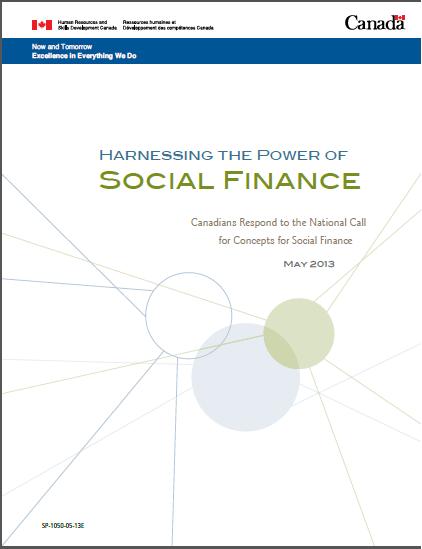Human Resources and Skills Development Canada released its report Harnessing the Power of Social Finance in response to the national call for concepts it undertook in late 2012. This call for concepts challenged Canadians to propose solutions to complex social issues that are funded through social finance instruments.
The Canadian CED Network worked with several partners to ensure that effective and proven CED, cooperative, and social enterprise investment approaches were among the responses. Notably, CCEDNet submitted a proposal to develop Community Economic Development Investment Funds (CEDIFs) across the country. CEDIFs raise capital from the community to invest in local enterprises which produce a social benefit. Citizens collectively identify social and economic challenges within their community and decide where to invest capital raised through the CEDIF to address those challenges. The Canadian Co-operative Association also submitted a proposal calling for the creation of a targeted co-op development initiative that would support co-ops for specific populations facing disadvantages.
The HRSDC report highlights innovative proposals from several CCEDNet members:
Ottawa Community Loan Fund (OCLF): OCLF’s Seniors’ Housing Project submitted a concept that would develop small-scale, independent community-based living units.
Toronto Enterprise Fund (TEF): TEF submitted a concept that would provide business coaching and financing to social enterprises staffed by marginalized people.
In addition, the report highlights successful social finance initiatives that are already operating in Canada. Among these was the Vancity Resilient Capital Fund, earmarked for investment in social enterprises, which was created by the Vancouver Foundation and Vancity.
The report was picked up with a front page article in the Globe and Mail, which focused on social impact bonds.
Sherri Torjman, Vice-President of the Caledon Institute of Social Policy reacted to the report with a subsequent Globe article urging caution.





